2500+
Successful Projects
As technology is advancing at a wildfire speed, AI apps have become a new normal these days. From students to businesses, everyone is now cognizant of the immense potential that this technology holds for the present and the future. Whether you want to learn a new language, find a simple traffic-free route, edit a photo/video, or transcribe a phone call, there is an app for almost every possible thing you think of.
Back in the days of the early 2000s, who would have imagined virtual assistants that work on just a voice command? Probably no one. But it's the reality today. From simplifying daily routine tasks to providing innovative healthcare solutions, these AI apps are reshaping the technology landscape.
Apps like Google Assistant, Siri, FaceApp, and ChatGPT have gained global fame in no time but the AI industry is not all about revolving around these popular ones. There’s more to the story. So, let’s today unveil some of the best AI apps in 2023 that are revolutionizing how we used to live, work, and interact with each other. We have listed down some of the best AI apps for iPhone and Android based on their categories to ensure you find one according to your needs.
AI chatbots are quite popular these days, especially in industries that directly deal with customers. While most of us only know about various ChatGPT versions, there are many other hidden gems that shouldn’t be overlooked.
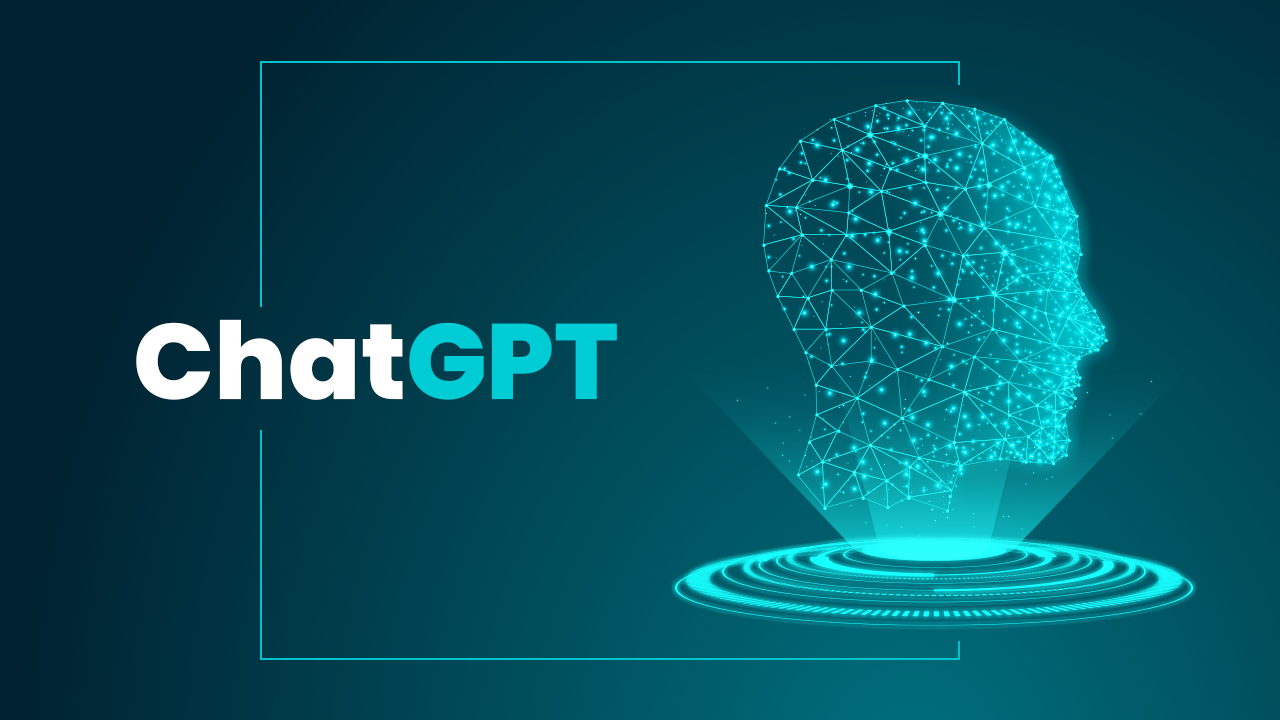
Before July 2023, if you ask which is the best AI chatbot app? Probably there could be no answer. But now after the official launch of the ChatGPT app, things have sorted a lot. Talking about the mobile app version of the GPT-powered chatbot, it offers the most intuitive and clean user interface.
You can easily interact with the ChatGPT chatbot through various ways like text, speech-to-text, photo uploads, and a new feature - voice conversation. You can directly start voice conversations with the app on the go and get real-time responses to it.
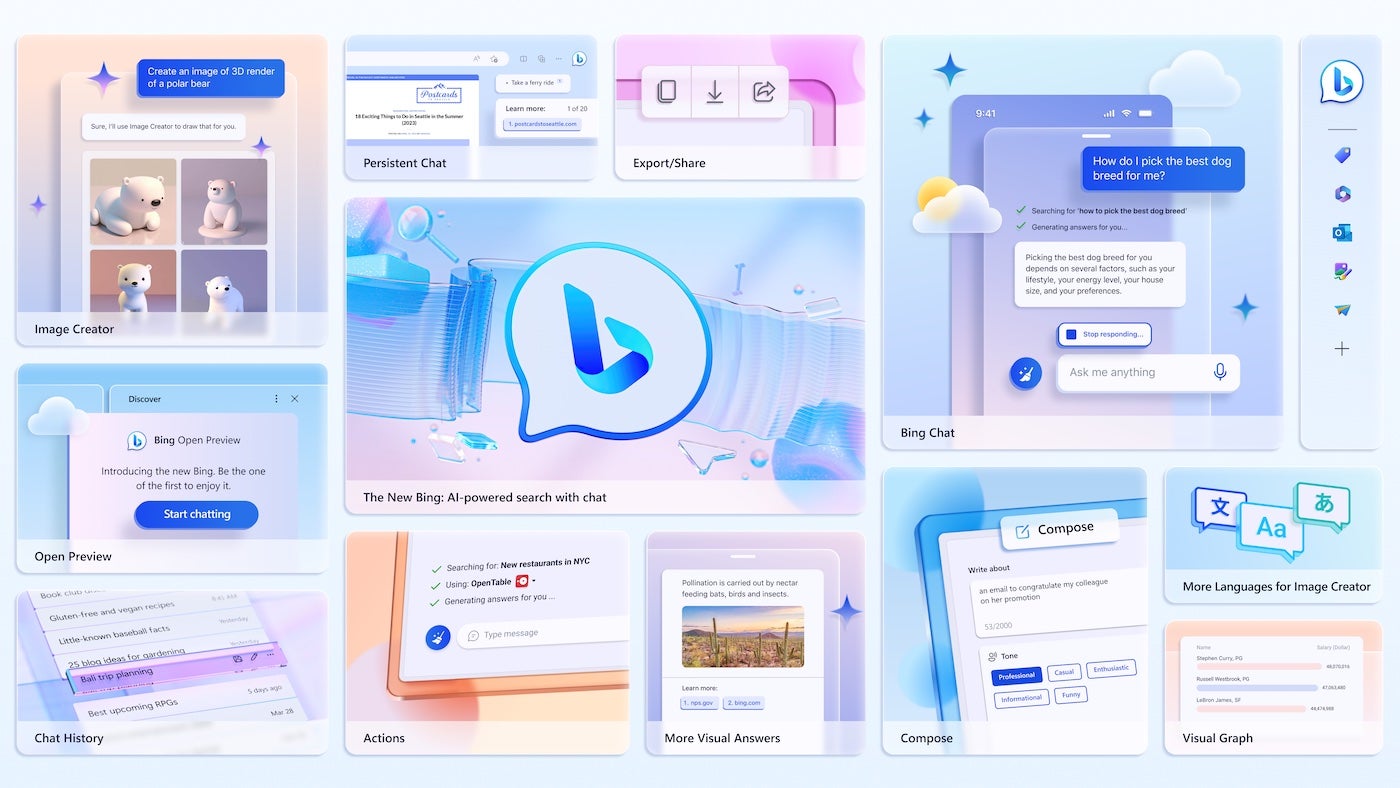
Bing Chat is powered by GPT-4 and DALL-E, two of the most advanced AI models in the world. They enable Bing Chat to do amazing things like create comparison tables, conduct complex web searches, and generate AI images on demand.
You can also customize your conversation style by choosing between creative, precise, or balanced modes. You can trust Bing Chat to give you accurate and verifiable information from the web, with links that you can easily check.
Bing Chat is more than just a chatbot app, it’s your smart and friendly companion for browsing the web and creating content.
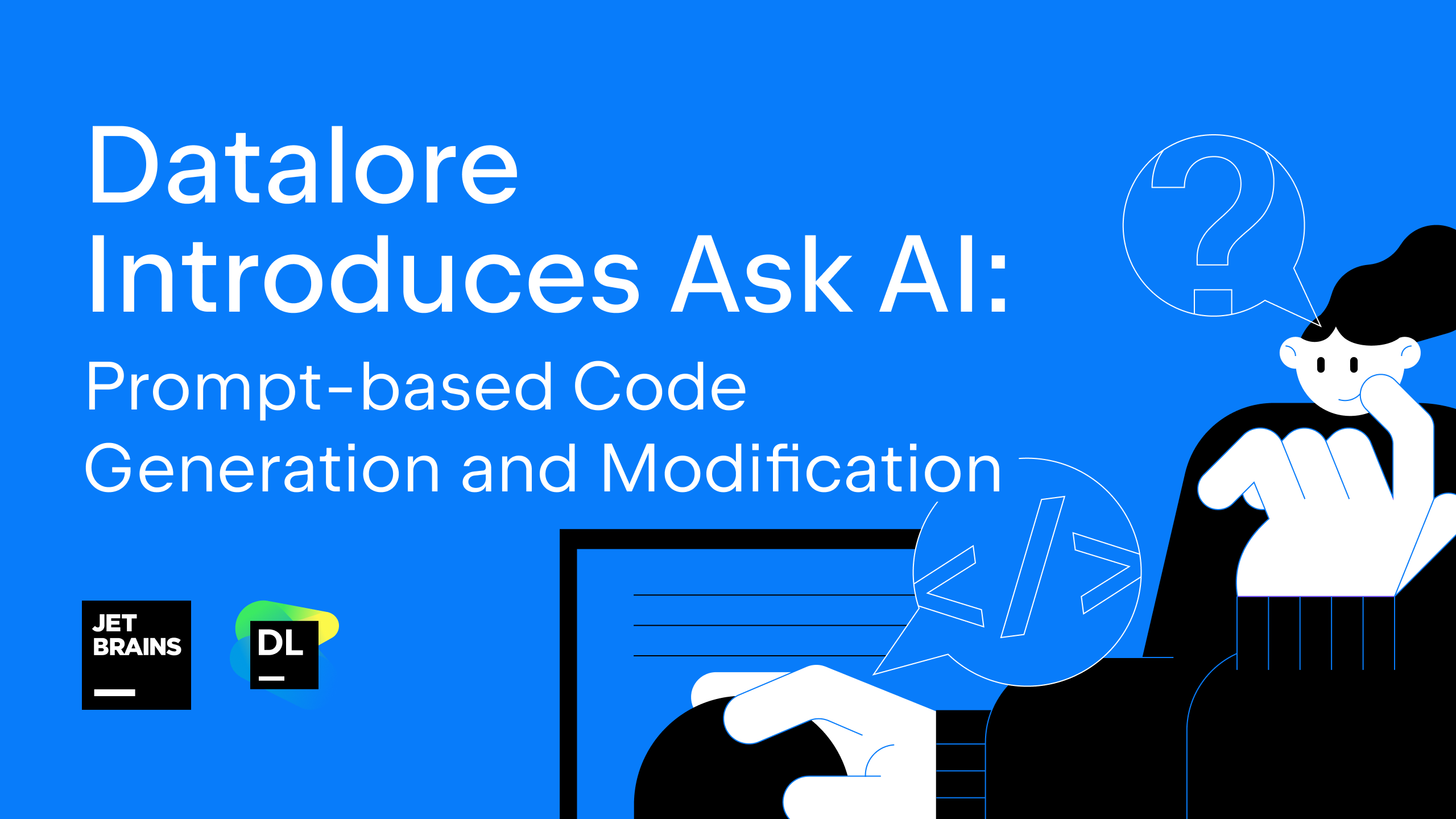
Ask AI is a powerful chatbot that answers the user’s queries, interacts with them, and can write new content based on text prompts. The app is powered by GPT-4 and ChatGPT API. You can ask the chatbot about various topics across different languages. Additionally, there’s a feature that lets you scan the text from your phone camera to start a conversation.
The applications of AI are not limited to chatbots but have a wide scope for Image enhancement and editing. Below are some of the best AI-powered Image and video editing apps:
Lensa is one of the cool apps that are making waves these days. The app generated personalized AI avatars based on user selfies. Just upload your clear photo, choose your style and the rest is Lensa job.
The app’s 10 million download count is evidence of its widespread popularity. It is more than just a regular photo editing app.
Apart from basic editing tools, there are features like skin refining effects, background remover, teeth whitener, auto-adjustments, and other blemish removers.
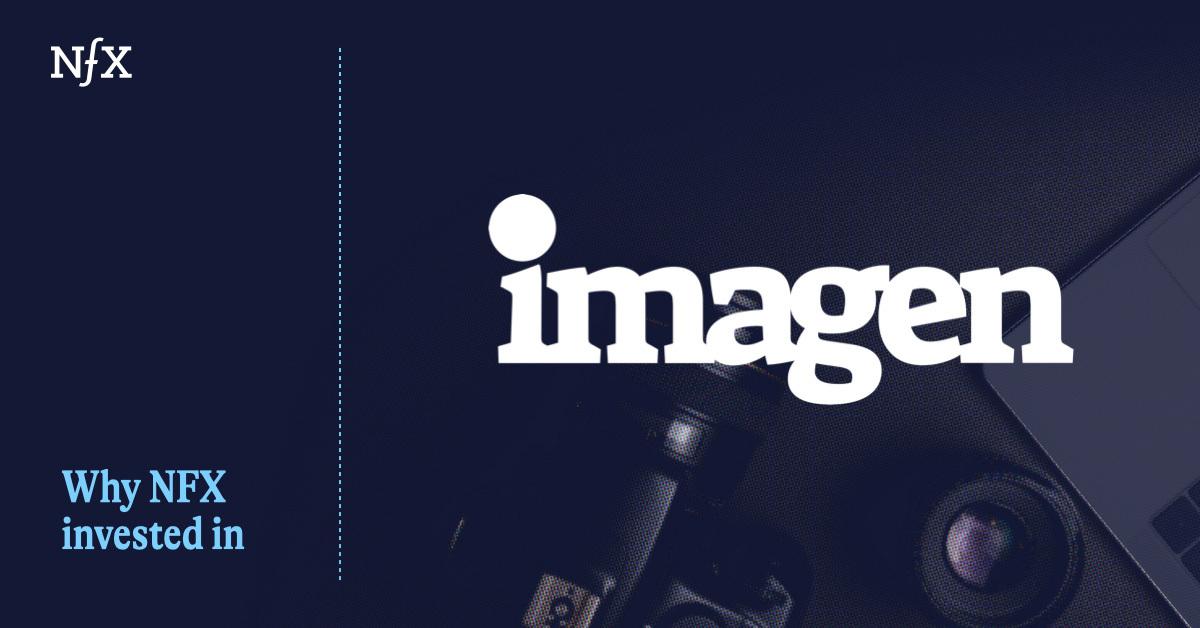
Imagen is an AI-free software that uses Adobe Lightroom Classic to integrate with your workflow. The tool has wide applications for image editing, including color correction, straightening, culling, cropping, and subject masks.
At the same time, the latest updates in Imagen allow for cloud backup for handling project backups seamlessly and automatically. The platform also claims to cut down the post-production process by up to 96%.

Facetune Online is a handy app for those who want to enhance their photos and videos with some quick fixes. You can use it to smooth out your skin, brighten your teeth, apply makeup, and change your face shape.
The app also lets you create your own avatar with the help of AI. You can choose from different costumes, hairstyles, backgrounds and more to make your selfies more fun and creative. Also, you can use the Face tune video editing feature.
With FaceApp, users can unleash their creativity and transform their selfies with AI. The app allows users to modify their face’s appearance, such as changing their hairdo, makeup, or beard, or altering their facial structure, gender traits, or apparent age. The same developer also offers FaceApp Video, an app that can apply similar changes and effects to videos.

StarryAI is the best AI app for iPhone and Android that automatically generates an image from a simple text prompt. The app works on two models: machine learning and stable diffusion to create artwork and images.
StarryAI is one of the best text-to-image generators available right now on the market. Additionally, you can also generate an AI avatar for your NFTs.
Voice assistants are not new; they long have been a part of smartphones. However, the integration of AI into voice assistants has been a game-changer. So, let’s look at some ground-breaking AI voice assistants available on the market today.

Alexa is a popular AI voice assistant that was launched by Amazon in 2014. Users can use Alexa to do various tasks, such as making lists, setting alarms, ordering products online, and more. Alexa can also communicate with users in natural language, thanks to its advanced natural language processing capabilities.
In 2023, Amazon revealed that it will use a new large language model to power its voice assistant, which will help Alexa to better understand more conversational phrases. Users can also connect Alexa’s app with other smart devices to control things like smart wearables, thermostats, televisions, and even cars from their phones.

Google Assistant is a leading AI-powered virtual assistant that can understand and respond to both voice and text commands. It uses natural language processing to perform various tasks, such as searching the web or controlling other devices with voice activation.
These artificial intelligence applications work with a wide range of smart devices, such as fridges, lights, and cars — offering a seamless Internet-of-Things (IoT) experience for users.

Siri is the original virtual assistant that was introduced in 2011. It is in-built functionality on all Apple devices, such as iPhones, iPads, watches, and even TVs. The app can do various tasks using voice queries and a natural language user interface, such as sending text messages or recognizing a song that is playing. It can also learn from a user’s language, searches, and preferences over time.
The applications of AI have had a greater impact on the education sector. There have been hundreds of AI-powered apps that are reshaping the entire industry. Here are some of the most prominent ones:

Duolingo is an AI-powered language assistant that offers listening, reading, and speaking practice in many languages around the world while using gamification elements to motivate users to keep learning.
By integrating AI, Duolingo’s lessons are tailored and adjusted for each student based on their performance. It also uses data and machine learning to improve the courses, taking into account the differences between various languages.

ELSA is an app that helps you learn to speak English like a native speaker. It uses AI and speech recognition to analyze your pronunciation and give you instant feedback.
When you download and use ELSA for the first time, you need to answer some questions and read a text aloud. ELSA will then evaluate your pronunciation and create a personalized learning plan for you.
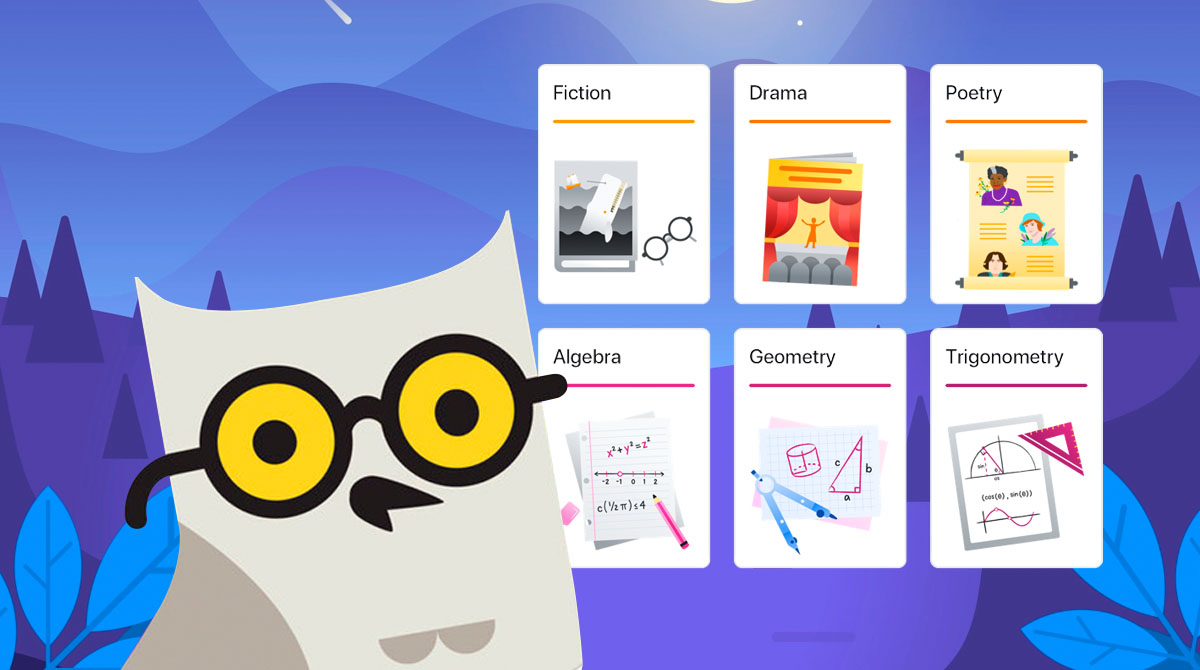
Socratic is one of the top apps that helps students from middle and high school with their homework. Students can snap a photo of their problem or question with their phone, and the app will show them how to solve it with visual steps.
The app was acquired by Google in 2018 and can handle different subjects, such as literature, physics, biology, trigonometry, and more.
The AI apps are redefining the transportation industry with integration into the top service providers. These apps not only offer real-time information but also predict future traffic conditions.

Google Maps is a powerful AI app that helps users find the best way to get to their destination. The app collects location data from smartphones and user feedback on things like road work and crashes to track how traffic is moving, estimate how long it will take to arrive, and suggest the fastest route.
The app also uses advanced machine learning methods and historical traffic data to forecast how traffic will change in the near future.

Waze is a popular app that helps drivers find the best routes to their destinations, based on the live traffic information shared by its huge community of users. Waze is not just a regular GPS app, but a smart one that uses AI and machine learning to analyze the data and offer the most optimal routes.
Waze was acquired by Google in 2013, but it still operates as a separate entity from Google Maps and competes with it and other navigation apps.
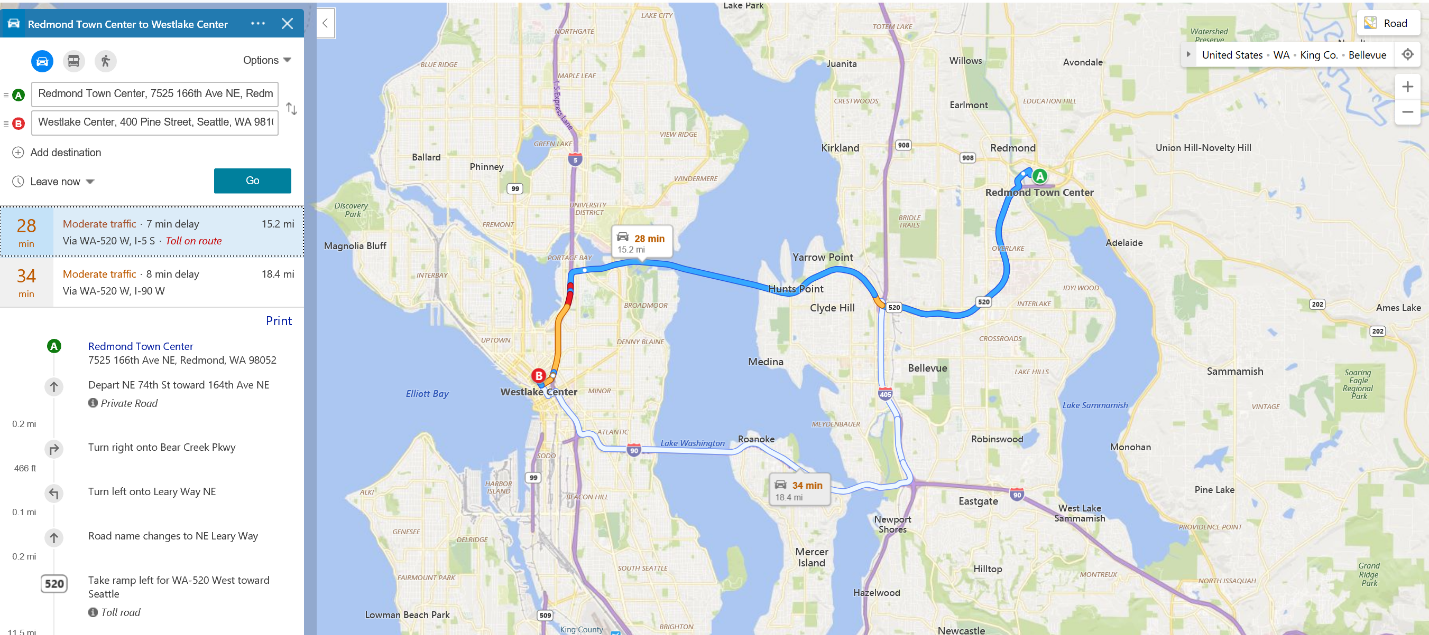
Bing Maps is a web-based service that offers maps, directions, traffic, and more to help users explore the world. Bing Maps is part of the Bing suite of search engines, and it uses the Bing Maps Platform framework to power its features.
The service also supports Bing Maps for Enterprise APIs and Azure Maps APIs for developers and businesses. Bing Maps has gotten its map data from TomTom, OpenStreetMap, and other sources since 2020.
Audio transcriptions help people record voices and then transcribe them into texts without any human intervention. Below are some of the best AI transcription apps:

Google’s Recorder is a free app that lets Pixel smartphone users record and transcribe their calls in real-time. The app has a simple interface with a big red button to start and stop the recording.
The transcription is done automatically and can be searched, edited, rearranged, and shared as full transcripts or snippets. Google’s Recorder is different from many other AI transcription services that charge fees or require an internet connection.

Amazon Transcribe is a service that uses machine learning to turn speech into text. You can use it to transcribe audio files or to add speech-to-text features to any app.
Amazon Transcribe lets you customize the language model for your specific needs, filter out unwanted content to protect customer privacy or match your audience, analyze multi-channel audio to separate different speakers, and more.

Otter.ai is a service that lets you record and transcribe video and phone conversations, using artificial intelligence. You can use it online or as a mobile app, and it works with Zoom and Google video meetings.
Otter.ai identifies the speakers in the recordings and creates a transcription with an outline and time stamps. The outline shows the main points of the conversation and lets you jump to them easily.
AI integration in mobile app development is a trend that is gaining popularity and momentum in the digital world. The technology helps mobile apps perform tasks that normally require human intelligence, such as speech recognition, image analysis, natural language processing, and decision-making.
Artificial Intelligence applications can enhance the functionality, performance, and user experience in various ways. Here are some of the benefits of AI integration in mobile app development:
AI integration in mobile app development is a powerful and innovative way to create smart and user-friendly apps that can solve problems, provide value, and delight users. AI can help mobile app developers achieve their goals and stay ahead of the competition.
While the idea of developing an AI-powered app seems lucrative, the cost of such a business venture is quite high. For those searching for the cost of AI app development, here’s a quick average cost analysis.
The cost of developing an AI app depends on several factors, such as:
Custom AI solutions are more expensive than pre-built AI software, as they require more development time and resources. Custom AI solutions can cost from $6000 to $300,000, while pre-built AI software can cost from $0 to $40,000 per year.
The more AI features an app has, the more expensive it is to develop. For example, an app that uses image recognition and natural language processing will cost more than an app that only uses chatbots.
The choice of platform (iOS, Android, web, etc.) and technology (frameworks, libraries, tools, etc.) can also affect the cost of developing an AI app. Different platforms and technologies have different advantages and disadvantages and may require different skill sets and expertise.
The size, experience, and location of the development team can also influence the cost of developing an AI app. A larger, more experienced, and more local team will generally charge more than a smaller, less experienced, and more remote team.
The average cost of developing an AI app can range from $35,000 to $120,000. However, this is only an estimate, and the actual cost may vary depending on the specific requirements and scope of the project. Therefore, it is advisable to consult with a professional AI app development company like Mtoag Technologies to get a more accurate quote.
After reading this blog post, you might have understood the potential and power of AI apps. So, whether you use them to enhance your daily productivity or to learn new languages, there are plenty of apps available to help you.
The only way to find out which one is best for you is to give them a try. Maybe your next virtual assistant is just one download away.
Additionally, this blog will not only help the individual find their AI companion but also guide businesses looking to invest in AI app development.
There is no definitive answer to this question, as different apps may have different AI features and capabilities. Some people may prefer apps that are more creative, such as Replika, while others may prefer apps that are more practical, such as Google Assistant.
Yes, there are many free AI apps available for various purposes, such as chatting, learning, gaming, shopping, editing, and more. Some examples of free AI apps are Cleverbot, Duolingo, and Pixlr.
AI can be used in daily life to enhance your productivity, creativity, entertainment, and convenience. You can use AI to communicate with others, learn new skills, and play interactive games.
There is no single AI app that everyone is using, as different people may have different interests and needs. However, some of the most popular and widely used AI apps are Siri, Alexa, Facebook, Instagram, and TikTok.
No, Siri is not a real person, but an AI assistant that can speak and listen to you, answer your questions, follow your commands, and help you with various tasks.
An AI app generator is a tool that can help you create your own AI app without coding. There are many AI app generators available, but some of the best ones are Thunkable, Appy Pie, Glide, Bubble, and AppSheet.
Yes, AI is used in app development to enhance the functionality, usability, and quality of the apps. AI can help app developers analyze user behavior, optimize app performance, personalize app content, recommend app features, and test app functionality.